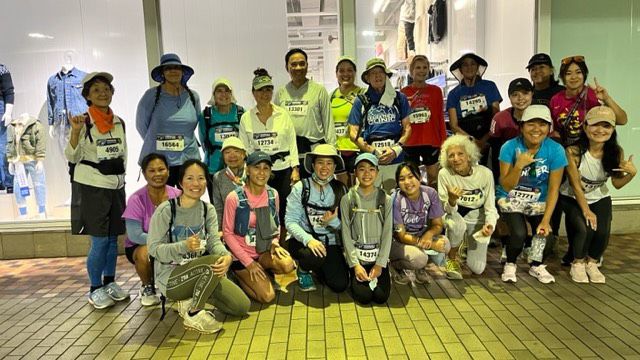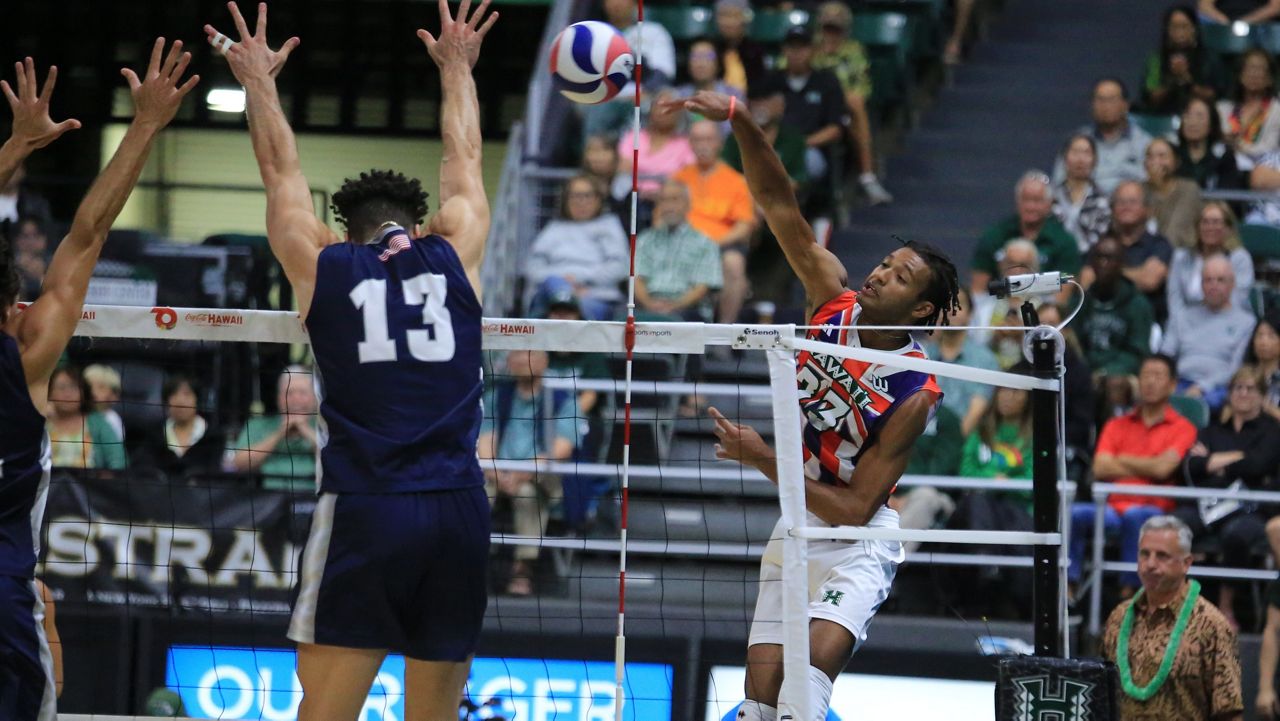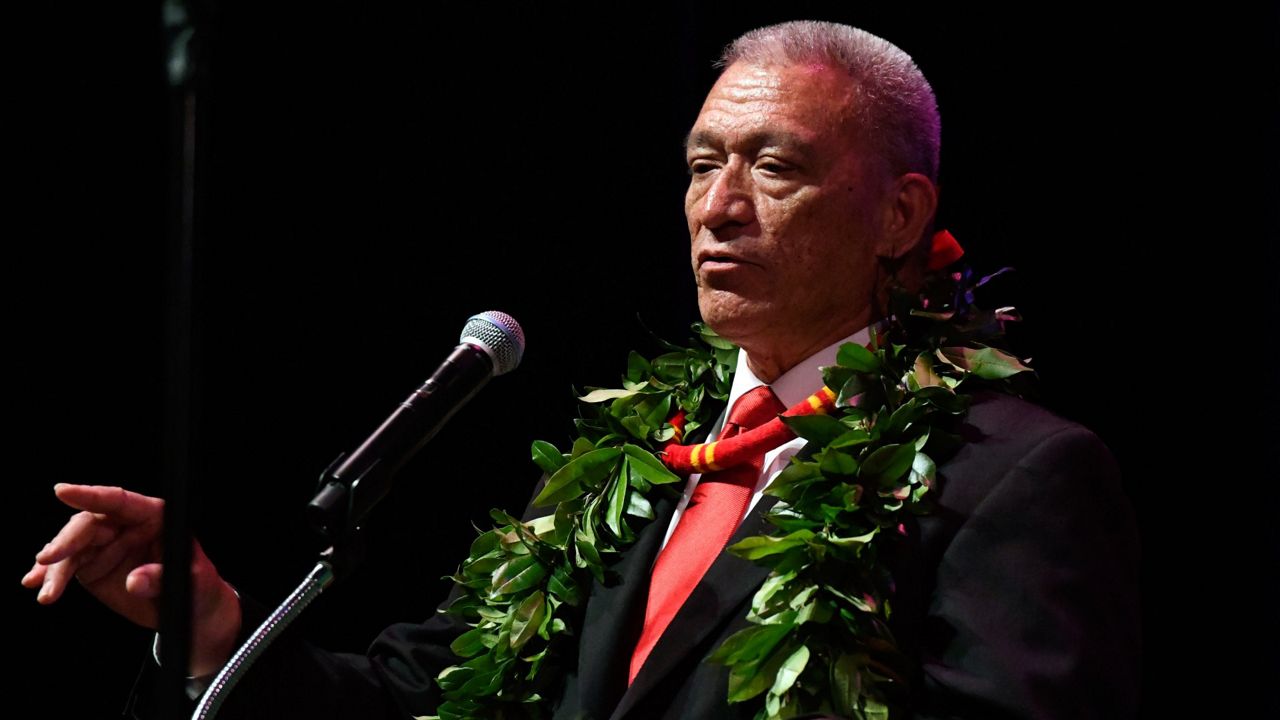HONOLULU — Jack Scaff’s greatest trick turns 50 this weekend, and scores of fitness marks are lining up to be taken in once again.
Scaff is best remembered as the founder of the Honolulu Marathon. Still, his proudest achievement, the one to which he remained devoted until his death last year at the age of 87, was the Honolulu Marathon Clinic, the free training program that each year prepares runners of all levels to achieve their personal marathon goals, be it simply completing the 26.2-mile distance, setting a new personal record or competing for age-group honors.
But participating in the Honolulu Marathon has never been an actual requirement. The not-so-secret secret of the clinic is that the race is simply an attractive carrot for prospective horses who might benefit from the now well-grounded lessons (and weekly application of those lessons) designed to promote cardiac fitness and overall health.
The first clinic of 2023 starts Sunday, 7:30 a.m., at the Kapiolani Park Bandstand. Future meetings will be at the usual clinic site at 3840 Paki Ave (Diamond Head end of Kapiolani Park).
Sunday’s clinic will include a pictorial display of the clinic’s history, a Honolulu Marathon Clinic family tree, and a Wall of Fame.
Scaff, a cardiologist, was an early believer in the health benefits of regular cardiac exercise. Influenced by the work of exercise pioneer Kenneth Cooper and drawn to then-groundbreaking research by pathologist Thomas Bassler, who claimed that a person who didn’t smoke and could finish a marathon in under four hours was assured of not suffering a heart attack in six years—founded the Cardiac Rehabilitation Program at the Central YMCA with fellow cardiologist John Wagner.
Scaff and Wagner’s explorations into the use of running as rehabilitation for people who had suffered a heart attack eventually led Scaff to pursue the idea of having his patients run a marathon. Enlisting the aid of the Mid-Pacific Road Runners Club and Honolulu Mayor Frank Fasi, who pledged the assistance of the Department of Parks and Recreation, Scaff staged the first Honolulu Marathon in 1973.
The grand experiment gave way to what Scaff described as a benevolent con.
The following year, Scaff and Wagner worked with DPS fitness specialist and Olympic gold medalist Tommy Kono to establish the Honolulu Marathon Clinic as a means of helping everyday people train for and complete the marathon.
The clinic operated then as it still does today. Each Sunday, participants gather at Kapiolani Park for a brief instruction on pace, hydration, recovery and other beginner-level essentials, then set out for group training runs. Runners self-select their group according to their ability and experience.
For most of the clinic’s existence, Scaff delivered the weekly lessons, science-based sermons on the philosophy of LSD—long, slow distance. Over the course of nine months (or less, depending on when people join), runners learn techniques like the talk test—running at a pace that allows you to maintain a conversation—to slowly and safely build the fitness and endurance necessary to complete the marathon distance.
Again, the real purpose of the clinic was to promote health and fitness, not necessarily to run the marathon.
“Jack wanted to get people to improve their health by exercising one hour a day, three times a week and have fun doing it,” said Scaff’s wife, Donna, one of the driving forces in the clinic’s six-decade run.
Donna Scaff was a young nurse when “Jumpin’ Jack Scaff,” as he came to be known by admiring interns and fellow doctors, was hired by the Honolulu Medical Group. The two fell in love, and Donna soon became among the first to succumb to the benevolent con.
“I was never athletic but he said I had to get active,” she recalled. “So I’d go out along the Ala Wai for half an hour. In those days, there were no women running on the road and guys whistled and honked at me. My face was red. My knees hurt. I hated it.”
But Donna kept at it and, within a few months, was able to comfortably run eight miles at a time. The fun of being in shape and building on her fitness eventually powered her all the way to the Honolulu Marathon finish line, the first of 35 marathons she’s completed.
Scaff said she’s committed to continuing the clinic as a free program open to anyone who wants to challenge themselves. She notes with due pride that over the clinic’s 50 years of operation, 90% of those who go through the training go on to successfully finish the Honolulu Marathon.
The percentage of participants who gain self-confidence, improve their health and make new friends may be even higher.
Lou Crompton, 80, had been a recreational runner for decades but had never attempted a marathon. However, after intense training runs with a group of fellow Special Operations veterans, he would sometimes see Honolulu Marathon Clinics departing Kapiolani Park for their weekly long runs.
When his own running group broke up, Crompton decided to investigate.
“I thought I’d give it a try and see what they’re doing,” he said. “I spent one Sunday with each group.”
Crompton stuck with it and was soon a regular marathoner. His finishing times, usually between 4:15 and 4:25, were perfectly respectable, but Crompton, who had been asked previously to help lead one of the beginner groups, realized his enjoyment of the race could be even deeper.
“I knew I could keep doing what I was doing, but that’s very middle-of-the-pack,” he said. “I’d always just be a face in the crowd. But if I were to help the 15 group (the training group that runs at a 15-minute-per-mile pace), I could be helping someone whose lifetime goal is to just do the race once or someone who is in it to lose weight or improve their health.
“It goes back to the purpose of the group,” he continued. “Jack didn’t start it to help 10-minute milers get to 9.5 minutes. He wanted to help people who were may older or who had a medical condition or were just average people.”
And so for the last dozen years or so, Crompton has led the 15s, the clinic’s largest training group, on their weekly runs and watched panting shufflers blossom into confident athletes and strangers become fast friends.
Carl Silva, 53, has been with the clinic since 2011, when his brother challenged him to do the marathon.
Silva, an experienced martial artist, was fit but unaccustomed to running long distances. Through the clinic, he learned how to control his pace to conserve energy and use his body’s resources efficiently.
“I realized that I didn’t have to kill myself,” he said. “It was doable. I stuck with the program and the distance kept getting longer.”
And Silva, who started the clinic weighing 250 pounds, kept getting leaner. He dropped 20 pounds in his first year running with the group and another 50 the following year.
“This clinic teaches you about life,” Silva said. “We all have hard times, like during the pandemic, but you just put one foot in front of the other and keep going.”
Becky Wong, 45, had walked the marathon with friends before but had never been part of a training program. When her sister Allison Yonamine, 47, said she wanted to attempt the race and was going to join the clinic to prepare, Becky joined, too.
Through the weekly lessons and training runs, Wong said she learned to read her body and tend to its needs over the course of more than six hours on the road. Along the way, she’s shaved about an hour and a half off her finish times.
“And I’m not in as much pain,” she said, laughing.
Wong said her regular training partners have become like family, and they help to hold each other accountable for putting in the work.
Last year, Wong’s 11-year-old daughter Ellie joined the group and finished fourth in her age division.
Wong said she’s happy that the clinic will continue to make good on its founders’ vision.
“(Jack and Donna) are so sweet and open, so selfless,” Wong said. “You don’t see that very often. They made sure the clinic is open to anybody and everybody—any size or shape, runner or walker. It makes you feel like you’re part of something bigger.”









